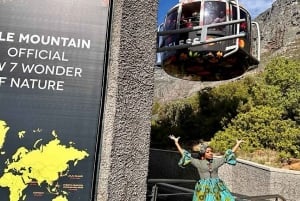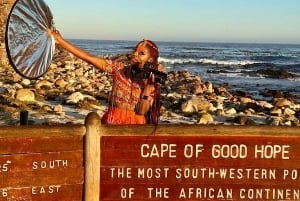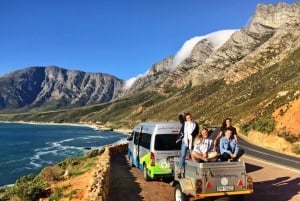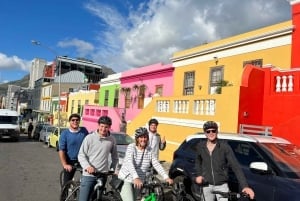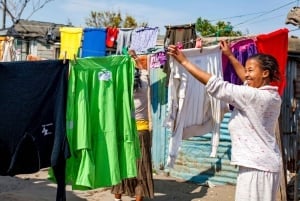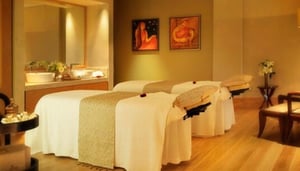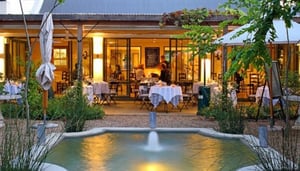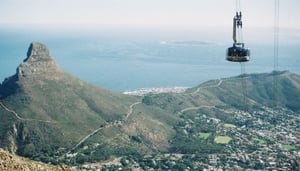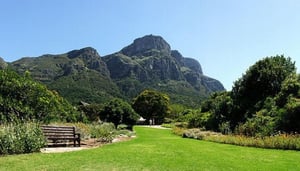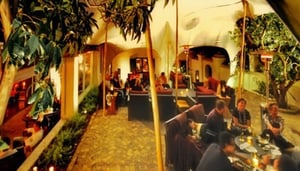Cape Town FAQ
Planning a trip to Cape Town, or any city for that matter, comes with lots of questions. Below are answers to the most frequently asked questions we receive about the Mother City.
1) What's the best way to get from Cape Town International Airport to our hotel?
This depends on where exactly you're staying. If you choose not to rent a car, there are a number of other options available. Many Cape Town hotels offer free or discounted shuttle services - call your accommodation to find out before leaving. There are numerous shuttle services in the arrivals hall at Cape Town International that will take you to your hotel. These operate on a fixed-cost basis, and usually charge between R100 to R300 per person depending on the exact location and number of passengers.
You can also catch a meter cab directly outside the terminal building. Ensure that it is a registered taxi with appropriate car markings, and then agree on the rate before you depart in a meter cab. Make sure you know where you're heading, or at least make sure it looks like it in order to ensure the most direct route. Cabs outside the airport are reliable, and will typically charge between R9 and R12 per kilometre excluding flag fall and optional tip. Many will negotiate a flat rate before departure, however.
If you are staying in the Cape Town city bowl, the most cost effective way to get to your hotel is via the MyCiti Bus. These world-class busses depart directly outside the arrivals terminal and drop you off at the Civic Centre approximately 30 minutes later. They cost R50 for a one-way trip, and you will need to organise a metre cab to pick you up from the station should your hotel not be within walking distance.
2) Where can I exchange foreign currency in Cape Town?
There is a wide network of banks throughout South Africa that will exchange your foreign currency, and most major tourist locations such as airports and hotels will have dedicated foreign exchange facilities.
3) Is the tap water in Cape Town safe to drink?
Absolutely! Cape Town, and South Africa, has some of the best drinking water in the world.
4) Is crime really an issue in Cape Town?
Crime in Cape Town is generally of an opportunistic nature, and tourists can take many measures to avoid being victims of crime. Read our Safety Tips for Tourists in Cape Town for more advice. While crime is a reality throughout South Africa, much of it can be avoided with good common sense and by being alert.
5) What's the best way to experience Table Mountain?
Table Mountain is surely one of the main reasons that you have decided to come to the Mother City, and for good reason! The view from the top is simply spectacular, and cannot be missed.
There are two ways to get to the top of Table Mountain, both equally rewarding. Take the Table Mountain Aerial Cableway, or don your hiking shoes and take one of the many exhilarating and rewarding trails. Pick up a reputable trail map at a local retailer or at the cableway store.
Personally, we recommend a combination of the two. Head to the lower cable station on Tafelberg Road nice and early with plenty of water, a jacket (regardless of the weather), and a good trail map. The quickest hike to the top is via Platteklip Gorge, which you can access by taking the path labelled as such 2 kilometres further along the road. The walk to the top is just 3 kilometres, but don't be fooled - although not particularly technical, the hike is steep and will take between one and three hours, depending on fitness.
Enjoy the views from the top, and if you're feeling energetic, hike back down. Alternatively, buy a one way ticket to the bottom to experience the thrill of the cable car. Be sure to read our hiking safety tips before departing.
6) Where else can I get great views of Cape Town city?
If you're up for a bit of exercise, Lion's Head, at the beginning of the road to Signal Hill, offers spectacular views of the City Bowl, Table Mountain, Robben Island, Clifton and Camps Bay, and is a steep but doable hike. Many argue that views from Lion's Head are actually better than those from Table Mountain. You'll have to decide for yourself. Alternatively, drive to the top of Signal Hill for wonderful views of Robben Island, Cape Town Stadium, the V&A Waterfront, Table Mountain, and the City Bowl.
7) How much time does it take to explore Cape Town's winelands?
Anything from a few hours to a few days. If you're in town for a short time, you can dedicate a morning to explore one or two wine estates in Stellenbosch, Franschhoek or Paarl, and if you're on a very tight schedule, the winelands in Constantia, which offer spectacular wines, meals and views are just a few minutes away.
If you're passionate about your grapes, spend a weekend in the heart of the Cape winelands exploring everything that they have to offer. There is a lot of accommodation available throughout the winelands which offer an all-together different way to explore this region, and there are enough wine estates to soak up more than a few days. Take a look at our winelands page for inspiration.
8) What's the deal with the car guards? Do I have to tip them?
During working hours and Saturday mornings, many Cape Town parking bays are manned by official parking guards, who will request payment as you disembark from your vehicle. They are wearing official outfits and will furnish you with a slip in exchange for your payment. Your best bet is to tell them you'll be gone for 30mins, and then pay them the balance on your return.
You will also encounter unofficial car guards throughout the city, and while you're not legally required to tip them, it is recommended. Anything between R3 and R5 is the norm, which is handed over voluntarily on return to your vehicle. Just be sure not to shuffle through your wallet or purse on the street late at night - do so once inside your vehicle.
9) What is the recommended amount to tip waiters / drivers / hotel staff etc.?
Most locals tip waiters, bar staff and other people in the service industry between 10% and 20% of the final bill, depending on the level of service. In most cases it is optional, but many restaurants now add a 10% surcharge to tables of 6 or more, which should be indicated on the bill.
10) What is the best time of the year to visit Cape Town?
Any time! Each season in Cape Town has something to offer its visitors - take a look at our Cape Town weather page for more info.
11) When are shops, banks and liquor stores open?
Most big shopping malls, including the V&A Waterfront and Canal Walk, are open 7 days a week. Banks and smaller shops usually close on Saturday afternoon and Sunday. Liquor laws in Cape Town are still fairly conservative, and are fairly erratic. You can purchase wine at most grocery stores (but not beer or spirits), except on a Sunday and after certain hours. There are a limited number of liquor stores in the City Bowl that are permitted to sell liquor after hours and on a Sunday.
12) What do I do in an emergency, and what is the healthcare situation like in Cape Town?
Private hospitals in Cape Town are excellent, and your best bet if you're looking to be attended to promptly. Most travel insurance cover treatment at private hospitals. There are also numerous doctors throughout Cape Town who offer excellent service.
For a medical emergency, dial 082 911 or 112 from your mobile phone. Police can be contacted by dialling 10111.
13) What electrical outlets can I use for my appliances?
South African outlets follow international protocols, and produce 220-240 volts. Most sockets are suitable for rounded 3-prong plugs, while many appliances make use of 2-prong plugs. Adapters are available cheaply in supermarkets and stores throughout the city, and are more expensive at major tourist locations such as the airport. Most hotels will provide you with adapters should you forget yours behind.
14) Is it safe to swim in Cape Town beaches? What about sharks?
Cape Town beaches generally offer cold but safe swimming and surfing conditions. There are lifeguards on duty on most major beaches throughout the peak summer months, and it is advisable to only swim at beaches where lifeguards are on duty.
While there have been a handful of shark attacks in Cape Town waters, these are extremely rare and highly unlikely. Nevertheless, there are many measures in place to limit the risk of these attacks, such as the shark spotter programme.
15) Where exactly do the two oceans meet?
Unfortunately, not at Cape Point. Even though this spectacular natural stretch of land jutting dramatically into the turbulent ocean is well worth a visit, it is not the official meeting point of the Indian and Atlantic oceans. This you will find a few hundred kilometres east, at Cape Agulhas.
Anything we haven't addressed that you'd like answered? Head to our Facebook and Twitter pages and let us know!


